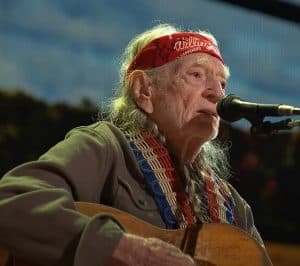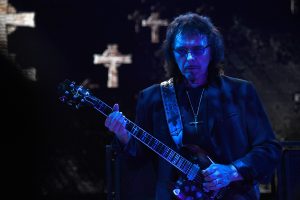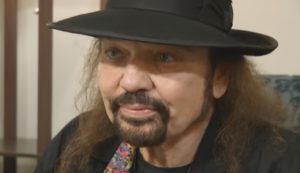Don Henley Labels The Most American Artist

via The Howard Stern Show / Youtube
Rock and roll has always held a special place in the American heart. It’s more than just music; it’s a cultural touchstone, a reflection of our joys, sorrows, and everything in between.
While the genre’s roots can be traced back to the electrifying sounds of pioneers like Chuck Berry and Little Richard, its influence extends far beyond its American birthplace.
Even the legendary artists who shaped rock’s evolution, like The Beatles and The Rolling Stones, were initially inspired by these American giants. But when it comes to capturing the essence of what truly makes American music “American,” Don Henley, of Eagles fame, believes there’s one artist who stands out: Randy Newman.
“It’s an unflinching portrait of America in all its sham and all its glory”
The country rock legend, when inducting Newman into the Rock and Roll Hall of Fame, couldn’t have been clearer about his admiration. He declared, “[In his music], you can hear America, the way it was and the way it is. Randy Newman’s music is American to the core. It’s an unflinching portrait of America in all its sham and all its glory.”
This raw honesty resonated deeply with Henley, influencing his own songwriting. Songs like “The Last Resort” and “Hotel California” offered scathing critiques of American society, questioning how citizens treat their own country and the way they idolize celebrities.
While Newman’s playful Pixar soundtracks may be more familiar to some, his vast back catalog holds the key to understanding the true essence of American music. It’s a treasure trove waiting to be explored, offering a unique and unfiltered perspective on the nation’s soul.
So, if you’re looking for music that captures the complexities and contradictions of America, look no further than Randy Newman. His songs are a powerful and sometimes uncomfortable, but ultimately honest, reflection of the nation’s identity.
View this post on Instagram
From Dixieland jazz to Eagles’ country rock
Henley’s musical journey began with humble beginnings. During his high school days, he honed his skills playing Dixieland jazz alongside his friends. However, the budding musician soon discovered the potential of singing beyond just playing instruments.
This realization led him to take the helm of the group Shiloh, venturing westward from Texas with the help of established singer Kenny Rogers. While playing in Linda Ronstadt’s backing band, fate brought him face-to-face with a young Glenn Frey.
Recognizing the potential for a unique collaboration, Henley felt a pull towards a different musical direction. He decided to leave Ronstadt’s band and embark on a songwriting partnership with Frey. Together, they envisioned the sound that would become the Eagles, carrying the torch of introspective songwriting ignited by Randy Newman.
This pivotal decision marked a turning point in Henley’s career, paving the way for the formation of one of the most iconic bands in music history. His early experiences, from Dixieland jazz to Linda Ronstadt’s band, provided the foundation for his future success, shaping him into the artist he would become.
The unconventional genius of Randy Newman
As for Randy Newman, he never boasted about having the most versatile voice in the world. Yet, his brilliance lay in pushing the boundaries of rock and roll, creating music that transcended conventional expectations.
Growing up in Louisiana, he absorbed the sounds of jazz giants and classical composers, weaving them into his own unique tapestry. His songwriting often tackled the darker side of American history, using biting sarcasm to tell tales of tragedy in songs like “Rednecks” and “Short People”.
Henley, deeply impressed by Newman’s talent, even found himself contributing to some of his projects. He occasionally lent his backing vocals and drumming skills, adding texture to Newman’s self-deprecatingly described “wounded water buffalo” voice.
While Henley may not have always grasped the full depth of meaning behind every Newman song, he recognized the genius of his music. He saw Newman as a national treasure, a true American voice that dared to challenge and provoke through his unconventional artistry.












